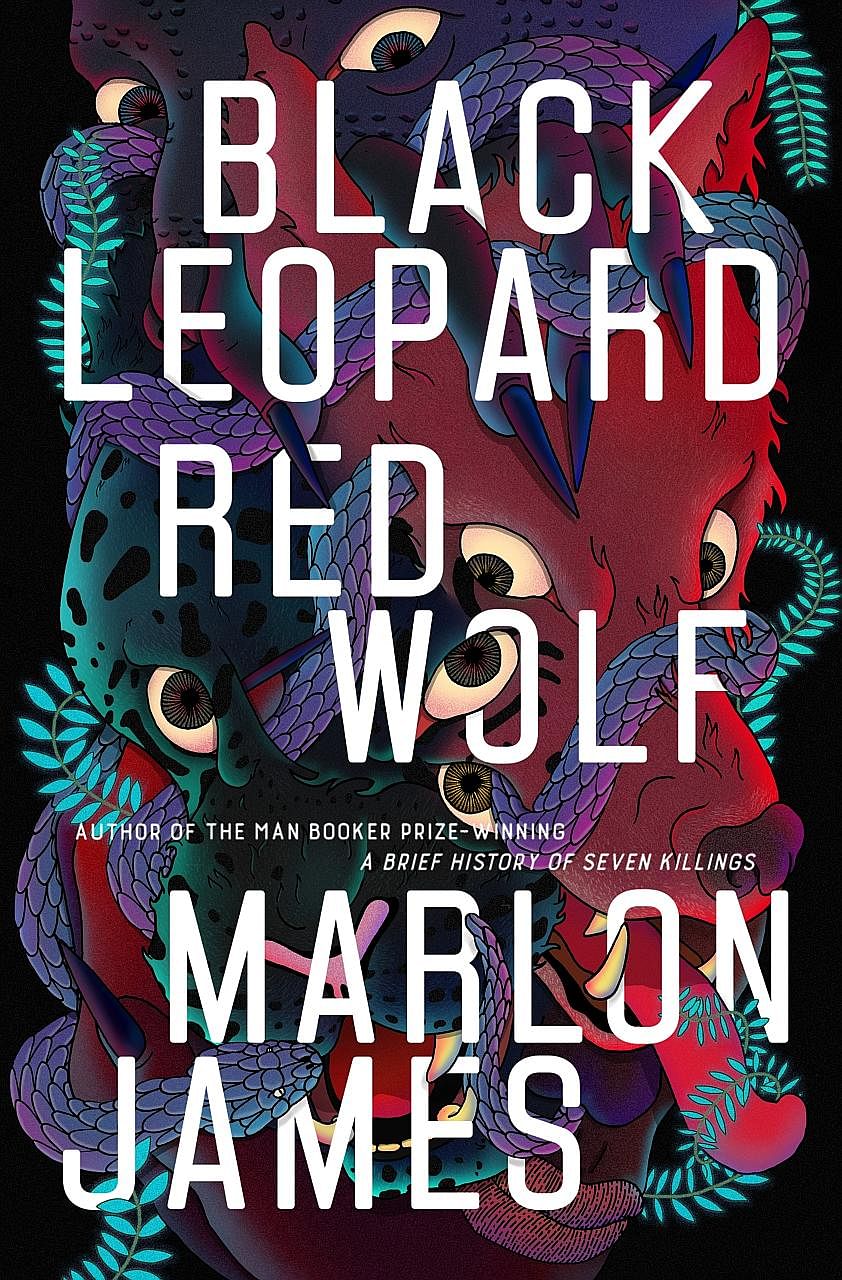Black Leopard, Red Wolf
By Marlon James
Riverhead Books/Paperback/624 pages/$32.10/Books Kinokuniya
4 stars
Jamaican novelist Marlon James' epic fantasy has been touted as a response to J.R.R. Tolkien's The Lord Of The Rings, one that makes use of African mythology, where black men are not the "half-trolls" out of Far Harad dismissed by Tolkien in a passing reference, but the milieu of a whole world.
Black Leopard, Red Wolf, the first in James' Dark Star trilogy, is a huge, relentlessly rich novel likely to go far - Black Panther (2018) star Michael B. Jordan and Warner Bros have already bought the film rights.
It has a hallucinatory quality to it, like an extremely long fever dream. It clocks in at more than 600 pages, though still fewer than the misleadingly titled A Brief History Of Seven Killings, which won James the Man Booker Prize in 2015.

It is narrated by Tracker, a man with a nose - a gift for scenting and tracking anyone over long distances. He also has a mouth, to the chagrin of those who hired him for his nose, not his sparkling conversation.
"I would love to greet this sun and bid it good-bye without killing a man," is the kind of thing he says to new acquaintances.
Tracker has a dark family history, an eye taken from a wolf and a heart of gold. Early on, he becomes the caretaker of a group of "mingi" children, born different and abandoned by their birth parents. They are raised in a treehouse, X-Men style, by a Sangoma, a witch, with the help of the Leopard, who shape-shifts between man and beast.
But tragedy strikes this newfound family and the narrative picks up with Tracker again years later - a dissolute, disaffected mercenary drawn reluctantly by Leopard into a quest.
As with The Lord Of The Rings, this quest has a fellowship of nine, though these are no noble heroes and they spend more of the mission at one another's throats than fighting side by side.
There is the old Moon Witch Sogolon. There is the river goddess Bunshi, who can melt into a black puddle. There is Sadogo, a giant bred as a slaver and executioner, who will talk your ear off mournfully reliving his countless crimes, whom this reviewer finds to be the most engaging character in the novel.
The quest is to find a young boy who has been kidnapped by monstrous beings, although the child's origin is a mystery and shifts every other chapter.
The reader knows from the beginning that the quest is a failure - Tracker's first line is: "The child is dead. There is nothing left to know."
The book appears convoluted, even deliberately disorienting, although it is in fact exactingly plotted. By its bloody end, no strand is left hanging.
James weaves a brilliant, dizzying tapestry of myths - shadow assassins called the Omoluzu who come out of holes in the ceiling to the call of blood; Bad Ibeji, a parasite that starts feeding on its own twin in the womb; the Adze, who turns into a swarm of flies that burrow into his enemies' flesh and drain them dry.
The vividness of his writing is palpable even in throwaway directions: "The midnight street! Go to the end, and turn right past the dead tree, then down the three sets of steps, deep in the dark. So dark that you can't see, only feel. He in the house of a witchman with the heart of an antelope rotting on the door."
The novel possesses levels of graphic violence to rival Game Of Thrones. There is an unforgettably horrific scene in which an eyeball is sucked out of someone's head while he is still conscious.
The violence feels not so much gratuitous as intrinsic to the fabric of this world, but even so, there is so much of it, it begins to have a deadening effect after a point, with the exception of the devastating ending.
This is not helped by the narrative tendency towards repetition, as well as the vaunting machismo of Tracker's voice.
Black Leopard, Red Wolf is a laudable addition to the genre, even if the thought of two more books in this vein - James has said they will retell the same events from different perspectives, Rashomon-style - is exhausting.
But there is no place in this fantasy for the faint-hearted.
If you like this, read: Who Fears Death by Nnedi Okorafor (HarperCollins, 2010, $18.34, Books Kinokuniya). In a post-apocalyptic Sudan, young sorceress Onyesonwu sets out to defeat her father, who raped her mother as part of a campaign of genocide.


